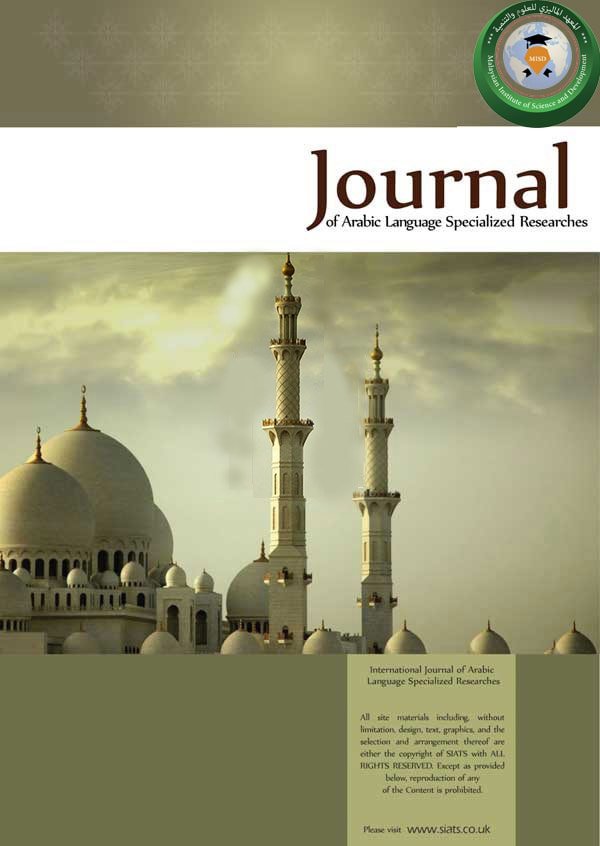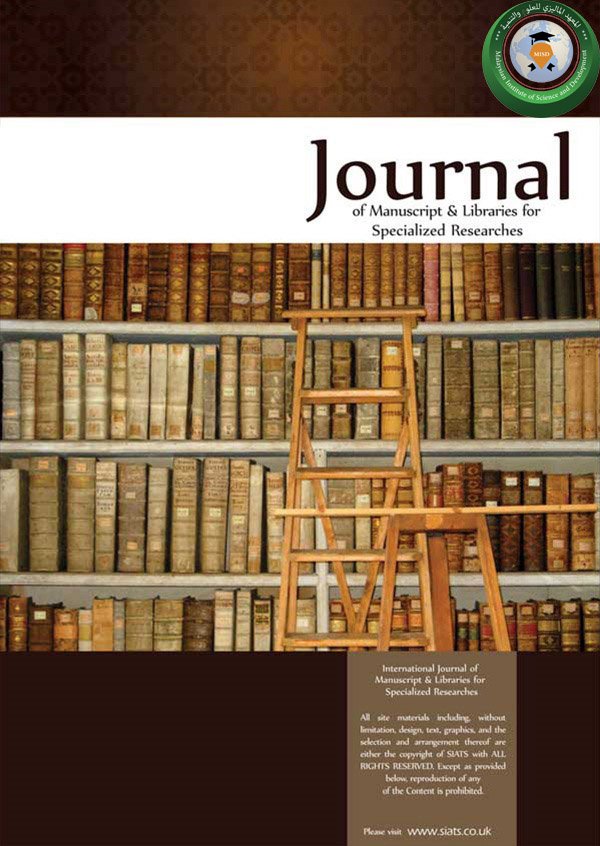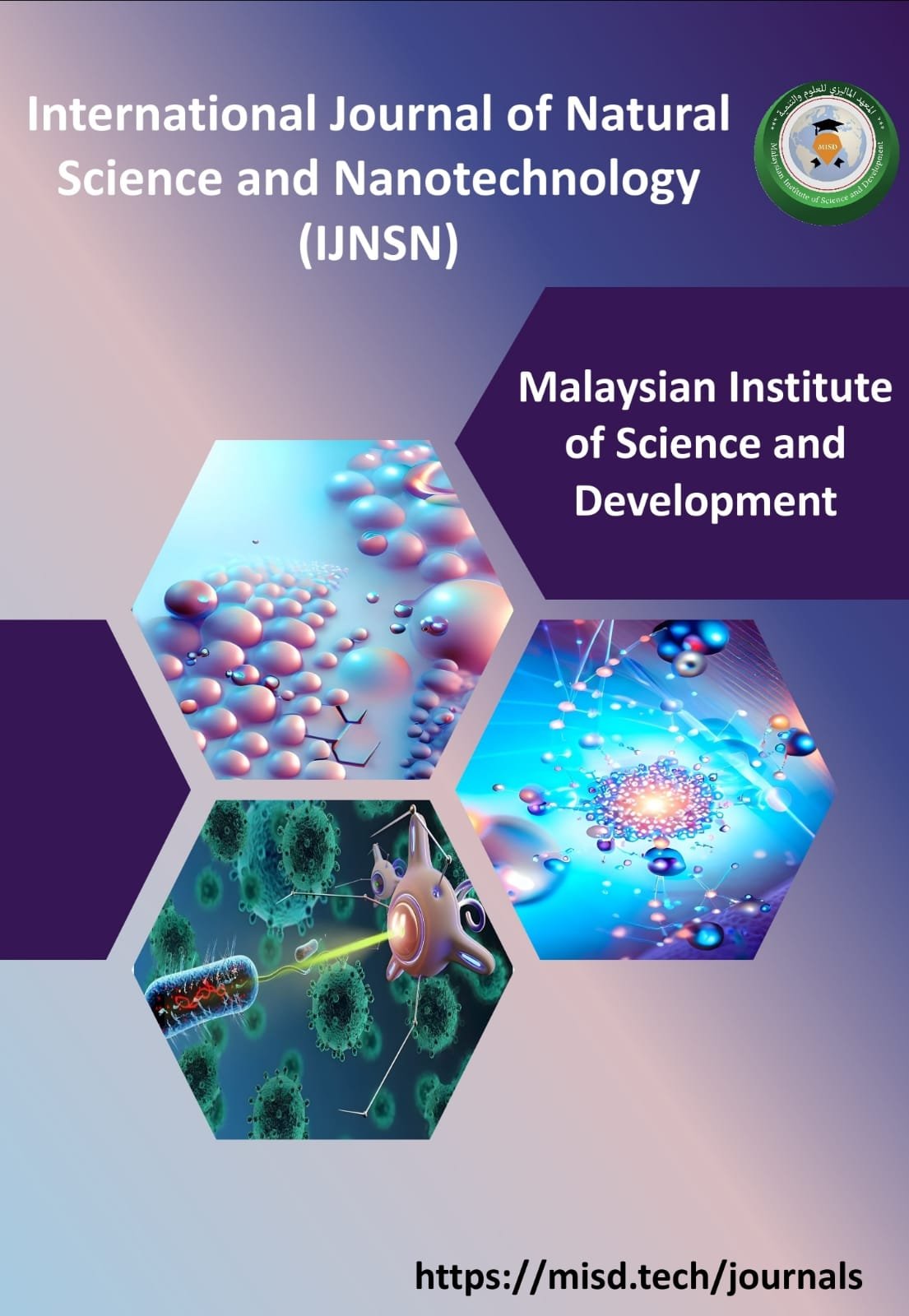Publication Ethics and Publication Malpractice Statement
The Scientific Institute for Advanced Training and Studies has been set up by a group of
researchers and experts to offer a special project that takes advantage of all available resources,
knowledge and experiences to be used in the context of an creative work that makes ordinary
citizens an advanced example of scientific and intellectual development and innovation.
The Scientific Institute for Advanced Training and Studies (siats.co.uk) has seven journals in
deferent fields. SIATS journals are free of charge, except some charges are to be taken for
manuscript editing, paper analysis, postal services, Internet access and many others
Authors and Authors responsibilities
Fair play and editorial independence
Editors evaluate submitted manuscripts exclusively on the basis of their academic merit
(importance, originality, study’s validity, clarity) and its relevance to the journal’s scope, without
regard to the authors’ race, gender, sexual orientation, ethnic origin, citizenship, religious belief,
political philosophy or institutional affiliation. Decisions to edit and publish are not determined by
the policies of governments or any other agencies outside of the journal itself. The Editor-in-Chief
has full authority over the entire editorial content of the journal and the timing of publication of
that content.
Confidentiality
Editors and editorial staff will not disclose any information about a submitted manuscript to
anyone other than the corresponding author, reviewers, potential reviewers, other editorial
advisers, and the publisher, as appropriate.
Disclosure and conflicts of interest
Editors and editorial board members will not use unpublished information disclosed in a submitted
manuscript for their own research purposes without the authors’ explicit written consent.
Privileged information or ideas obtained by editors as a result of handling the manuscript will be
kept confidential and not used for their personal advantage. Editors will recuse themselves from
considering manuscripts in which they have conflicts of interest resulting from competitive,
collaborative, or other relationships/connections with any of the authors, companies or institutions
connected to the papers; instead, they will ask another member of the editorial board to handle the
manuscript.
Publication decisions
The editors ensure that all submitted manuscripts being considered for publication undergo peerreview by at least two reviewers who are expert in the field. The Editor-in-Chief is responsible for
deciding which of the manuscripts submitted to the journal will be published, based on the
validation of the work in question, its importance to researchers and readers, the reviewers’
comments, and such legal requirements as are currently in force regarding libel, copyright
infringement and plagiarism. The Editor-in-Chief may confer with other editors or reviewers in
making this decision.
Involvement and cooperation in investigations
Editors (in conjunction with the publisher and/or society) will take responsive measures when
ethical concerns are raised with regard to a submitted manuscript or published paper. Every
reported act of unethical publishing behavior will be looked into, even if it is discovered years
after publication. AP-SMART editors follow the COPE Flowcharts when dealing with cases of
suspected misconduct. If, on investigation, the ethical concern is well-founded, a correction,
retraction, expression of concern or another note as may be relevant, will be published in the
journal.
Duties of Reviewers
Contribution to editorial decisions
Peer review assists editors in making editorial decisions and, through editorial communications
with authors, may assist authors in improving their manuscripts. Peer review is an essential
component of formal scholarly communication and lies at the heart of scientific endeavour. APSMART shares the view of many that all scholars who wish to contribute to the scientific process
have an obligation to do a fair share of reviewing.
Promptness
Any invited referee who feels unqualified to review the research reported in a manuscript or knows
that its prompt review will be impossible should immediately notify the editors and decline the
invitation to review so that alternative reviewers can be contacted.
Confidentiality
Any manuscripts received for review are confidential documents and must be treated as such; they
must not be shown to or discussed with others except if authorized by the Editor-in-Chief (who
would only do so under exceptional and specific circumstances). This applies also to invited
reviewers who decline the review invitation.
Standards of objectivity
Reviews should be conducted objectively, and observations formulated clearly with supporting
arguments so that authors can use them for improving the manuscript. Personal criticism of the
authors is inappropriate.
Acknowledgement of sources
Reviewers should identify relevant published work that has not been cited by the authors. Any
statement that is an observation, derivation or argument that has been reported in previous
publications should be accompanied by the relevant citation. A reviewer should also notify the
editors of any substantial similarity or overlap between the manuscript under consideration and
any other manuscript (published or unpublished) of which they have personal knowledge.
Disclosure and conflicts of interest
Any invited referee who has conflicts of interest resulting from competitive, collaborative, or other
relationships or connections with any of the authors, companies or institutions connected to the
manuscript and the work described therein should immediately notify the editors to declare their
conflicts of interest and decline the invitation to review so that alternative reviewers can be
contacted.
Unpublished material disclosed in a submitted manuscript must not be used in a reviewer’s own
research without the express written consent of the authors. Privileged information or ideas
obtained through peer review must be kept confidential and not used for the reviewer’s personal
advantage. This applies also to invited reviewers who decline the review invitation.
Duties of Authors
Reporting standards
Authors of original research should present an accurate account of the work performed and the
results, followed by an objective discussion of the significance of the work. The manuscript should
contain sufficient detail and references to permit others to replicate the work. Review articles
should be accurate, objective and comprehensive, while editorial 'opinion' or perspective pieces
should be clearly identified as such. Fraudulent or knowingly inaccurate statements constitute
unethical behaviour and are unacceptable.
Data access and retention
Authors may be asked to provide the raw data of their study together with the manuscript for
editorial review and should be prepared to make the data publicly available if practicable. In any
event, authors should ensure accessibility of such data to other competent professionals for at least
10 years after publication (preferably via an institutional or subject-based data repository or other
data centre), provided that the confidentiality of the participants can be protected and legal rights
concerning proprietary data do not preclude their release.
Originality and plagiarism
Authors should ensure that they have written and submit only entirely original works, and if they
have used the work and/or words of others, that this has been appropriately cited. Publications that
have been influential in determining the nature of the work reported in the manuscript should also
be cited. Plagiarism takes many forms, from "passing off" another's paper as the author's own, to
copying or paraphrasing substantial parts of another's paper (without attribution), to claiming
results from research conducted by others. Plagiarism in all its forms constitutes unethical
publishing behaviour and is unacceptable.
Multiple, duplicate, redundant or concurrent submission/publication
Papers describing essentially the same research should not be published in more than one journal
or primary publication. Hence, authors should not submit for consideration a manuscript that has
already been published in another journal. Submission of a manuscript concurrently to more than
one journal is unethical publishing behaviour and unacceptable.The publication of some kinds of
articles (such as clinical guidelines, translations) in more than one journal is sometimes justifiable,
provided that certain conditions are met. The authors and editors of the journals concerned must
agree to the secondary publication, which must reflect the same data and interpretation of the
primary document. The primary reference must be cited in the secondary publication.
Authorship of the manuscript
Only persons who meet these authorship criteria should be listed as authors in the manuscript as
they must be able to take public responsibility for the content: (i) made significant contributions
to the conception, design, execution, data acquisition, or analysis/interpretation of the study; and
(ii) drafted the manuscript or revised it critically for important intellectual content; and (iii) have
seen and approved the final version of the paper and agreed to its submission for publication. All
persons who made substantial contributions to the work reported in the manuscript (such as
technical help, writing and editing assistance, general support) but who do not meet the criteria for
authorship must not be listed as an author, but should be acknowledged in the
"Acknowledgements" section after their written permission to be named as been obtained. The
corresponding author should ensure that all appropriate coauthors (according to the above
definition) and no inappropriate coauthors are included in the author list and verify that all
coauthors have seen and approved the final version of the manuscript and agreed to its submission
for publication.
Disclosure and conflicts of interest
Authors should—at the earliest stage possible (generally by submitting a disclosure form at the
time of submission and including a statement in the manuscript)—disclose any conflicts of interest
that might be construed to influence the results or their interpretation in the manuscript. Examples
of potential conflicts of interest that should be disclosed include financial ones such as honoraria,
educational grants or other funding, participation in speakers’ bureaus, membership, employment,
consultancies, stock ownership, or other equity interest, and paid expert testimony or patent
licensing arrangements, as well as non-financial ones such as personal or professional
relationships, affiliations, knowledge or beliefs in the subject matter or materials discussed in the
manuscript. All sources of financial support for the work should be disclosed (including the grant
number or other reference number if any).
Acknowledgement of sources
Authors should ensure that they have properly acknowledged the work of others, and should also
cite publications that have been influential in determining the nature of the reported work.
Information obtained privately (from conversation, correspondence or discussion with third
parties) must not be used or reported without explicit, written permission from the source. Authors
should not use information obtained in the course of providing confidential services, such as
refereeing manuscripts or grant applications, unless they have obtained the explicit written
permission of the author(s) of the work involved in these services.
Hazards and human or animal subjects
If the work involves chemicals, procedures or equipment that have any unusual hazards inherent
in their use, the authors must clearly identify these in the manuscript. If the work involves the use
of animals or human participants, the authors should ensure that all procedures were performed in
compliance with relevant laws and institutional guidelines and that the appropriate institutional
committee(s) has approved them; the manuscript should contain a statement to this effect. Authors
should also include a statement in the manuscript that informed consent was obtained for
experimentation with human participants. The privacy rights of human participants must always
be observed.
Peer review
Authors are obliged to participate in the peer review process and cooperate fully by responding
promptly to editors’ requests for raw data, clarifications, and proof of ethics approval, patient
consents and copyright permissions. In the case of a first decision of "revisions necessary", authors
should respond to the reviewers’ comments systematically, point by point, and in a timely manner,
revising and re-submitting their manuscript to the journal by the deadline given.
Fundamental errors in published works
When authors discover significant errors or inaccuracies in their own published work, it is their
obligation to promptly notify the journal’s editors or publisher and cooperate with them to either
correct the paper in the form of an erratum or to retract the paper. If the editors or publisher learns
from a third party that a published work contains a significant error or inaccuracy, then it is the
authors’ obligation to promptly correct or retract the paper or provide evidence to the journal
editors of the correctness of the paper. For guidelines on retracting or correcting articles, please
click here: https://www.elsevier.com/about/company-information/policies/article-withdrawal.
Duties of the Publisher
Handling of unethical publishing behavior
In cases of alleged or proven scientific misconduct, fraudulent publication or plagiarism, the
publisher, in close collaboration with the editors, will take all appropriate measures to clarify the
situation and to amend the article in question. This includes the prompt publication of an erratum,
clarification or, in the most severe case, the retraction of the affected work. The publisher, together
with the editors, shall take reasonable steps to identify and prevent the publication of papers where
research misconduct has occurred, and under no circumstances encourage such misconduct or
knowingly allow such misconduct to take place.
Access to journal content
The publisher is committed to the permanent availability and preservation of scholarly research
and ensures accessibility by partnering with organizations and maintaining our own digital archive.
For details on Elsevier’s archiving policy, please click here:
https://www.elsevier.com/about/company-information/policies/digital-archive. Elsevier policies
on key issues ranging from accessibility to text and data mining can be found
here: https://www.elsevier.com/about/company-information/policies.








 English
English